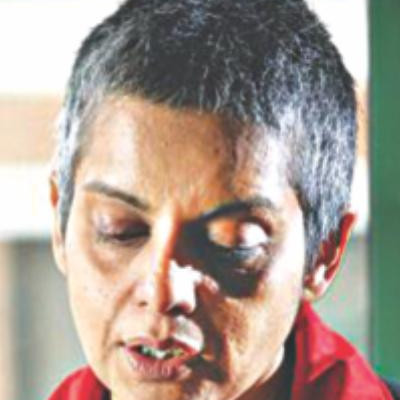Rafida Ahmed Bonya, widow of slain secular writer Dr Avijit Roy, has urged the international community to immediately act to save the free voice in Bangladesh.
“I am pleading to the international community to pay attention before it gets completely out of control like some of the other countries,” she told a UN panel in New York on Monday.
Islamist terrorists are killing liberal writers, journalists and bloggers amid a culture of impunity, she said at the UNESCO-organised programme at the UN Headquarters to mark the second International Day to End Impunity for Crimes against Journalists (IDEI).
The day is made official by a UN resolution that condemns violence against journalists and media workers, and urges its member states to prevent violence against journalists and to bring to justice those responsible for attacks.
This year, the day was observed only two days after the murder of publisher Faisal Arefin Dipan and attacks on another publisher — Ahmedur Rashid Tutul — and two liberal writers — Ranadipam Basu and Tareq Rahim — in Dhaka.
Bonya and her husband Avijit Roy were hacked in the middle of a crowded street in Dhaka University area on February 26 on their way back from the Ekushey Book Fair. Though Bonya survived the machete attack, Avijit didn’t.
Since then, secular bloggers Oyasiqur Rahman, Ananta Bijoy Das and Niladri Chattopaddhaya were killed. The apparently synchronised attacks on Saturday were the latest in the series.
Both Dipon and Tutul published Avijit Roy’s books.
“Before this attack was [carried out] in the dark, now the extent of impunity is so great that they attack us in the broad day light in front of thousands of people, or inside the residences or offices of the publishers. So far, they [have] killed five bloggers, writers and publishers this year and wounded many,” Bonya, a Bangladesh-born US citizen, told the panel moderated by Journalism Professor Rosental Alves of the University of Texas.
As the attackers on secular writers were not brought to book, now they have targeted those who published the books of those writers, she said.
“The situation is dire. These bloody days are becoming a norm. Hacking the people … is becoming a monthly chore for the Islamic terrorists.”
Bonya said she had talked to Tareq Rahim’s wife and learnt his situation was still critical, and that the family was not feeling safe. “We know they will come back for Ahmedur Rashid Tutul again.”
Religious fundamentalists aren’t the only foes to freethinkers, she said, criticising Bangladesh’s Information and Communication Technology Act that outlaws publication, broadcast or websites that are fake and obscene, and communications that hurt or may hurt religious sentiments.
“You can tell all these are vague terms. They are very hard to be defined,” she told at the high-level UN event.
The ICT Act has made the criticism of religion on the internet punishable with up to 14 years of imprisonment.
Under this act, Bonya said, the Bangladesh government has arrested quite a few bloggers, not the killers, for “hurting religious feelings in their writings”.
A journalist was arrested and harassed a few weeks ago for causing so-called embarrassment to a minister of the current government, said the online activist.
“The Bangladesh government was completely quiet after the first three murders this year, and when they were forced to say something after the fourth murder, they told us to be careful about what we write.”
Those in the government said they were walking a fine line because of the electoral politics, and they could not risk their alliance with the religious groups by supporting the secular writers of the country, she went on.
“None of these real killers have been captured or tried by the government or the judiciary system. A few have been captured, but we haven’t seen them tried yet. Some of them even got out on bail.”
When some bloggers went to the police to notify them about threats from these terrorists, the law enforcement agencies remained silent and inactive, she alleged. “Some of them even were advised to leave the country if they didn’t feel safe.”
“They [police] are not ashamed or hesitated to provide indirect support to the killers this way,” she said.
Secular writers and journalists right now are living in a country where they do not feel safe to express their views anymore, Bonya said.
“We are asking the international community to come forward, to save our free voice, freedom of expression and a healthy secular society.”
“These brave journalists, writers, bloggers, publishers in Bangladesh love their country and want to make a difference in their own homeland,” she added.
At the programme, Unesco Director-General Irina Bokova urged the states to take all necessary measures — through legislation, protection mechanisms and new adequate resources — to ensure that investigations and trials relating to crimes against journalists are undertaken.

